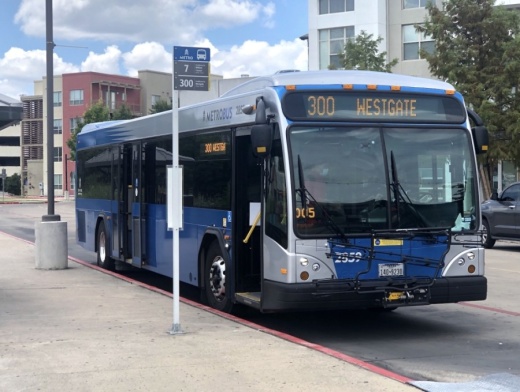Capital Metro's board has already approved a plan—called Project Connect—to build new light rail lines that converge in a downtown tunnel, among other transit improvements. Austin City Council decided July 27 to take another step toward calling the fall election to secure the funding.
The entire plan would cost $10 billion, most of which would go toward the underground station and the light rail lines running to North Austin, South Austin and Southeast Austin. The city is on a path toward asking voters to fund only a $7.1 billion piece of that plan, leaving certain elements, including extensions of the light rail in North Austin and South Austin, to future funding decisions. For the owner of a $325,000 home in Austin who receives a homestead exemption, that means that the property tax impact of Project Connect would be knocked down from $322 per year in additional city taxes for the entire system to $256 per year to fund the initial phase.
City Council made a slight change July 27 from the phased proposal Capital Metro had initially unveiled to the public the previous week.
That original proposal, first presented July 22, would have raised Austin's tax rate by $0.085 per $100 of valuation. The rate City Council asked staff to analyze July 27 would instead increase that rate by $0.0875 per $100 of valuation. That quarter-cent would add $100 million to prevent displacement along the future transit corridors, increasing that funding from $200 million to $300 million.
District 5 Council Member Ann Kitchen said the $300 million could be used in a number of different ways, including purchasing land, investing in affordable housing, helping residents with home repairs and providing rental assistance. The strategies, Kitchen said, should be developed alongside each neighborhood and unique to each community.
Capital Metro expects about 45% of the total system plan to be paid for by the federal government, a number that is in line, according to Dave Couch, Capital Metro Project Connect program manager, with what other cities have been awarded historically.
Based on that assumption, voters would be deciding Nov. 3 whether to allow the city to adopt a tax rate that would raise $3.85 billion in funding for the first phase of Project Connect. City Council must go through a number of procedural votes before it officially calls the election, and the July 27 decision to choose the phased approach and tell staff to go forward with the $0.0875 tax rate was just one step.
The final vote to officially put the decision on the ballot is scheduled to happen sometime between Aug. 12 and 14 in conjunction with the approval of the city budget.





